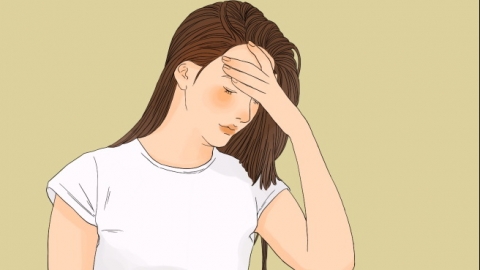How to Differentiate Dizziness Caused by Different Reasons
Dizziness caused by different reasons can be differentiated from physiological and pathological perspectives. Common causes include rapid postural changes, sleep deprivation, benign paroxysmal positional vertigo, Ménière's disease, and vestibular neuritis. If abnormalities occur, timely medical attention is recommended. Detailed analysis is as follows:

1. Rapid postural changes: Sudden standing up or turning the head can cause transient cerebral hypoperfusion, leading to temporary dizziness. This type of dizziness lasts briefly, usually resolving within seconds. Slowing down movements when standing can help prevent it.
2. Sleep deprivation: Long-term poor sleep quality or insufficient sleep duration prevents the brain from adequate rest, leading to neurological dysfunction and dizziness. Adjusting sleep schedules, ensuring regular and sufficient sleep, and reducing late-night activities can gradually improve dizziness symptoms.
3. Benign paroxysmal positional vertigo: Otoliths in the inner ear become dislodged and stimulate the semicircular canals during changes in body position, causing brief episodes of dizziness, often triggered by rolling over or bending the head forward, possibly accompanied by nystagmus. Treatment involves otolith repositioning performed by a physician.
4. Ménière's disease: Endolymphatic hydrops causes distension of the membranous labyrinth in the inner ear, resulting in recurrent episodes of rotational vertigo lasting from 20 minutes to several hours, often accompanied by tinnitus, aural fullness, and hearing loss. Medications such as hydrochlorothiazide tablets, difenidol tablets, and betahistine oral solution should be taken as directed by a physician.
5. Vestibular neuritis: Viral infection-induced inflammation of the vestibular nerve leads to sudden, severe dizziness, accompanied by nausea, hearing loss, etc. Treatment under medical guidance may include prednisone tablets, acyclovir tablets, mecobalamin tablets, and vestibular rehabilitation therapy.
In daily life, one should avoid rapid postural changes, maintain adequate sleep, and engage in moderate exercise to improve physical fitness.







